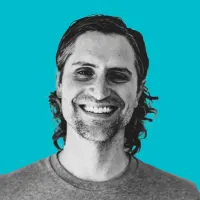This website uses cookies, belonging to us or third parties, to improve your experience, optimize performance and our services, understand your usage through analytics, and personalize advertising tailored to your interests on our site and third party sites. By continuing to use our site, you consent to such use of cookies. Please visit our Terms of Use and Privacy Policy where you can find out more about cookies and how to manage them.



This practice focuses on the principle of "no gaining idea" from Zen teachings and emphasizes the value of living a true, mindful existence. Thomas McConkie introduces the lesson from Suzuki Roshi's book, "Zen Mind, Beginner's Mind," which explores the concept. The value of acting without concern for one's own gain or attachment to a certain outcome is emphasized in the lesson.
When we act simply in order to accomplish a particular outcome or receive something in return, we lose touch with the moment and our true selves. By giving up the thought of gaining and simply being fully present in each moment, we can instead connect with our genuine selves and feel very alive.
The concept of "no gaining idea" encourages us to let go of our ego-driven aspirations and live instead from a place of contentment. It serves as a reminder that the true purpose of life is found in recognizing the inherent beauty of the present moment and being true to oneself, rather than in accomplishing or acquiring external rewards. We can live more purposeful lives where each action is an expression of who we truly are by adopting the no-gaining attitude.

This practice focuses on the principle of "no gaining idea" from Zen teachings and emphasizes the value of living a true, mindful existence. Thomas McConkie introduces the lesson from Suzuki Roshi's book, "Zen Mind, Beginner's Mind," which explores the concept. The value of acting without concern for one's own gain or attachment to a certain outcome is emphasized in the lesson.
When we act simply in order to accomplish a particular outcome or receive something in return, we lose touch with the moment and our true selves. By giving up the thought of gaining and simply being fully present in each moment, we can instead connect with our genuine selves and feel very alive.
The concept of "no gaining idea" encourages us to let go of our ego-driven aspirations and live instead from a place of contentment. It serves as a reminder that the true purpose of life is found in recognizing the inherent beauty of the present moment and being true to oneself, rather than in accomplishing or acquiring external rewards. We can live more purposeful lives where each action is an expression of who we truly are by adopting the no-gaining attitude.
You May Also Like

Thomas McConkie

